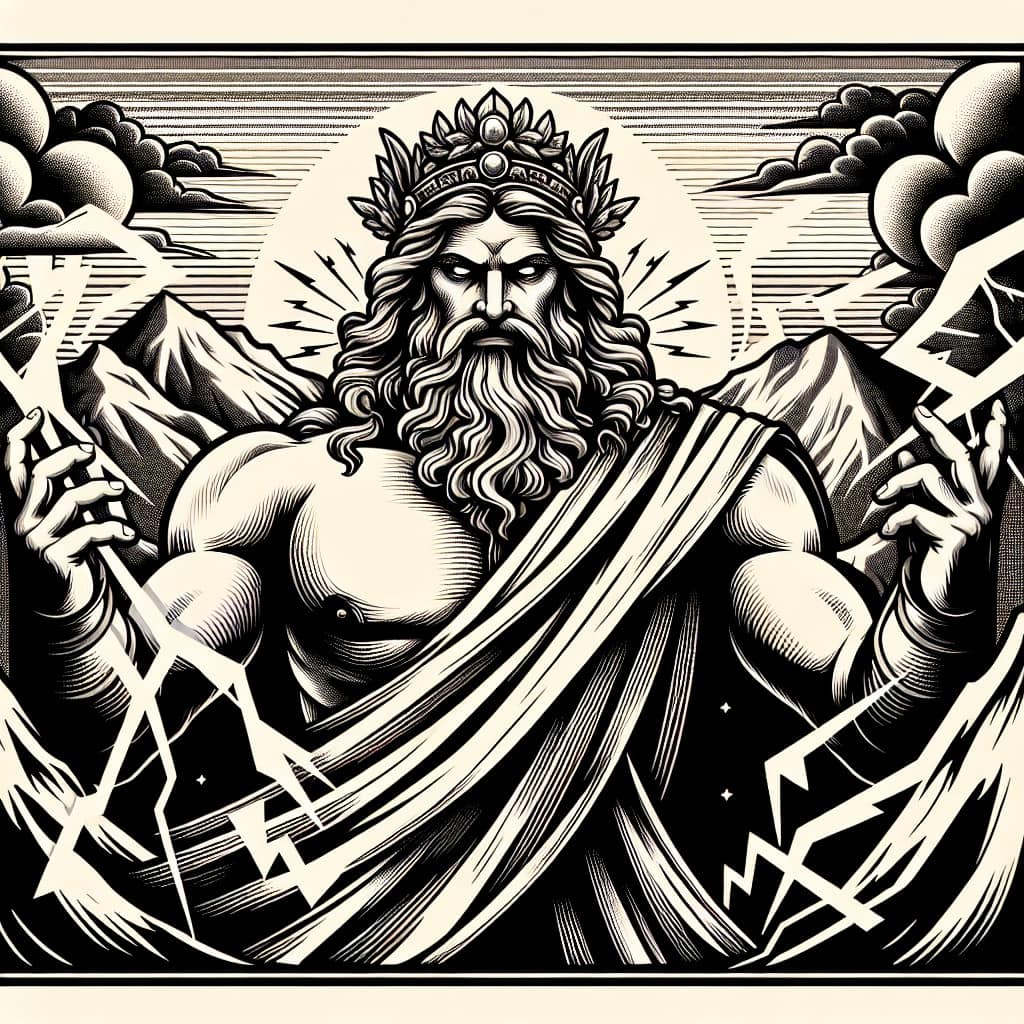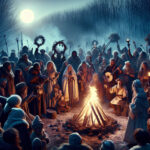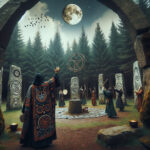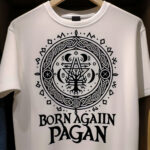Zeus, the powerful and majestic king of the Greek gods, is one of the most well-known figures in mythology. Although often referred to as a “pagan god,” it is important to understand the complicated history of the god and how his worship has evolved over time. In this article, we will explore the origins of Zeus as a pagan god, his various roles and domains, and the changes that have occurred in his worship over the years. We will also discuss the relevance of Zeus in modern culture and the impact he has had on our society.
Zeus is the supreme god in Ancient Greek religion and mythology. He is the god of the sky, lightning, thunder, law, order, justice, and fate. He is the youngest son of the Titans Cronus and Rhea, making him the brother of Poseidon (god of the sea) and Hades (god of the underworld). He is also the father of many gods and goddesses, including Apollo, Artemis, Athena, Ares, Aphrodite, and Hephaestus.
Origins of Zeus
Zeus is an important figure in Greek mythology and is often referred to as the king of the gods. He is the son of Cronus and Rhea, two of the Titans, and was raised by a goat on the island of Crete. According to myth, Zeus overthrew his father and the other Titans to become the ruler of the gods. He then divided the universe into three realms: the heavens, the underworld, and the earth. Zeus was responsible for the laws that governed these realms and was the source of justice and order. He was also responsible for the weather, and was often depicted carrying a lightning bolt.
Symbols of Zeus
The symbols associated with Zeus are the thunderbolt, the eagle, the bull, and the oak tree. The thunderbolt was his weapon of choice and was often depicted in artwork and literature. The eagle was often seen accompanying Zeus, as it symbolized power and strength. The bull was a symbol of fertility and was associated with the god of fertility, Dionysus. Finally, the oak tree was sacred to Zeus, as it was believed to be the birthplace of him and his siblings.
Cult of Zeus
The cult of Zeus was one of the largest and most influential cults of the ancient world. It had numerous shrines and temples dedicated to the god throughout Greece, including the Temple of Zeus at Olympia, which was the site of the ancient Olympic Games. The cult of Zeus was closely associated with the Oracle of Delphi, which was believed to be the source of divine knowledge and prophecy. This cult was also responsible for the establishment of the twelve Olympian gods, which included Zeus as the king.
Zeus in Popular Culture
Zeus has been a popular figure in literature, film, and television for centuries. He appears in many of the stories in the Greek epic poem The Iliad, and is the subject of the play Prometheus Bound by Aeschylus. He is also a major character in the films Clash of the Titans and Percy Jackson and the Olympians. In television, Zeus appears in the series Hercules: The Legendary Journeys and Xena: Warrior Princess. He is also a popular figure in video games, including God of War and Assassin’s Creed Odyssey.
Conclusion
Zeus is an important figure in Greek mythology and is the supreme god of the Ancient Greek pantheon. He is associated with the symbols of the thunderbolt, the eagle, the bull, and the oak tree. The cult of Zeus was one of the largest and most influential cults of the ancient world and was closely associated with the Oracle of Delphi. Zeus is also a popular figure in literature, film, and television, and appears in many video games.
In conclusion, Zeus, the powerful and revered pagan god of Ancient Greece, remains an important part of our cultural history and mythology. He is a symbol of strength and power, and his influence can still be seen in modern society. As we continue to explore our past, it is important to remember the significance of this great god and the impact he had on ancient civilizations. Zeus will continue to be a source of inspiration and awe for generations to come.





